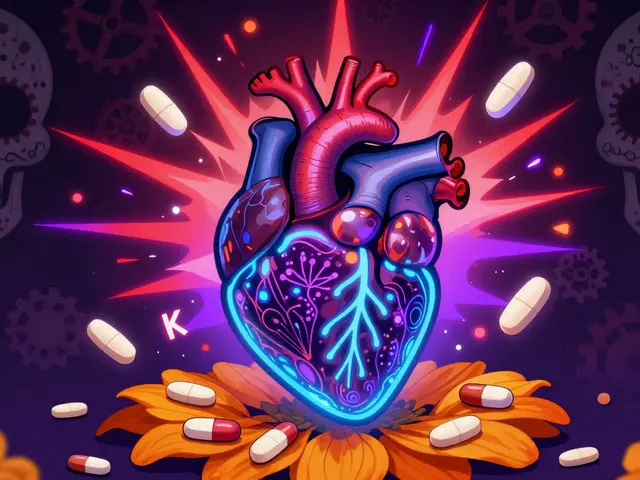Nutrition education: simple, useful food advice you can use today
Want straightforward nutrition help without the fluff? This page collects practical tips and short guides that make eating better easier. You’ll find clear advice on daily meals, label reading, supplements, and how food affects medications and conditions. Read the short guides below and click any article that fits your situation.
Practical nutrition basics
Start with the plate: half vegetables and fruit, a quarter lean protein, and a quarter whole grains or starchy vegetables. That layout keeps meals balanced without counting calories. Focus on whole foods most of the time — real fruit, vegetables, beans, fish, eggs, nuts, and whole grains — and cut back on added sugars and heavily processed snacks.
Need quick swaps? Swap sugary cereal for plain yogurt with berries and a sprinkle of oats. Switch white bread for whole-grain or sprouted bread. Replace sweet drinks with water, sparkling water, or unsweetened tea. Small changes add up and stick better than big, strict rules.
Reading labels helps. Look at serving size first, then calories and sodium. Ingredients are listed by amount — if sugar or a long chemical name is first, it’s probably processed. For supplements, check active ingredients, dosage, and avoid mega-doses unless a clinician recommends them.
Nutrition and medications — what to watch for
Food can change how medicines work. Some meds need to be taken with food to avoid stomach upset, others are better on an empty stomach for absorption. Grapefruit juice interacts with many drugs and can cause unsafe effects — skip grapefruit if you’re on cholesterol or blood-pressure meds unless your doctor says otherwise.
If you’re managing a condition like IBS, diet changes can help a lot. Our article "Best Cheaper Alternatives to Xifaxan for IBS" also covers diet and insurance tips that lower costs and improve symptoms. For skin and hormones, see "How Isotretinoin Enhances Acne Treatment" to learn how nutrition, side effects, and care routines fit together during treatment.
When on antibiotics or other strong drugs, avoid alcohol and check with a pharmacist about dairy and antacids — they can reduce antibiotic absorption. Always tell your prescriber about vitamins and herbal products; some herbs affect blood clotting, blood sugar, or hormone meds.
Want targeted ideas? Try the post "Natural Ways to Boost Male Performance" for diet-based strategies that actually have evidence behind them, or read "Effective Therapy Approaches for Managing PMDD Symptoms" for how nutrition supports mood and cycles. For breathing issues, see content related to Albuterol and Ventolin that includes diet tips to support lung health.
If you’re unsure where to start, pick one meal and improve it: add a vegetable, choose a lean protein, and switch to whole grains. Track sleep and stress too — they affect hunger and food choices. Use the site’s articles for specific conditions, and ask your clinician when combining diet with medications. Ready to explore? Click any article title above to get practical, condition-specific tips that actually help.

Well, folks, let's get real about nutrition education – it's something of a superhero in the fight against obesity! Knowledge is power, and when it comes to food, knowing what you're putting in your belly can make a huge difference. It's like having a map to navigate the jungle of junk food and come out the other side fit and healthy. So, let's put on our learning caps and start understanding our meals better, because the more we learn, the healthier we can be! Remember, nutrition education isn't about dieting, it's about making smarter, tastier choices. So, let's dig in!
Chris Gore Jul 31, 2023




